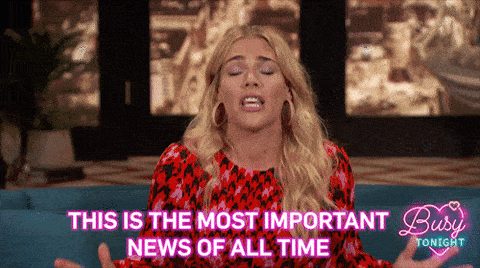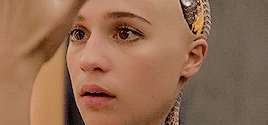Season 1 in Review: Let's get Ethical!
- Neuroethics Today

- Jan 28, 2020
- 6 min read
Updated: Apr 9, 2020

We’ve put together an overview of the main topics and lessons learned from season 1 of the Neuroethics Today podcast, found on our website, on Twitter, and Instagram. Last season focused on conversations between podcast host and founder Katherine Bassil, a fundamental neuroscientist and PhD candidate at Maastricht University in the Netherlands, and various experts in and out of academia. We chatted about all things neuroethics. Neuroethics is considered a multidisciplinary field that addresses both the neuroscience of ethics- like the brain regions associated with moral or ethical decision making- as well as the ethical implications of neuroscientific research and related neurotechnologies.

Season 1 hit the ground running with a lively discussion with Maastricht professor Jos Prickaerts regarding the exposure to neuroethics, or lack thereof, that scientists receive during their studies. As it turns out, most researchers have not been exposed to the concept of neuroethics during their training, making it more difficult to incorporate a neuroethical approach to their research. We will expand on what this looks like and provide tips and tricks for doing so in a future post. Prickaerts suggests that we may have ended up in the position due to trouble defining the concept of neuroethics - there are many disciplines that intersect in this niche - or perhaps a lack of actions reflecting the urgency of the matter. Personally, we wonder if the neuroscience research being done today is advancing at such a rate that perhaps scientists haven’t had the time to slow down and consider the unprecedented ethical challenges that need to be defined and addressed.
By episode 2 it was clear that researchers and academics alike ought to start taking a neuroethical approach to their work. That said, we don’t have time to wait for neuroethicists and neuroethicists alone to encourage this. In episode 2 Katherine explained her reasoning for addressing neuroethics despite being classically trained in fundamental neuroscience: to encourage a dialogue and bring awareness to these topics at every opportunity possible.
Episode 3 piggy-backed off of this concept nicely through a discussion with Dr. Daniel van den Hove. Here we learned more about current advancements in the use of biomarkers for diseases like aging and depression, and the implications of public opinion. A biomarker is a measurable indicator of the presence of a certain disease or disorder. Some are used to predict risk, and others to screen or diagnose. A key take away was that bringing the public closer to this science should be a priority. Encouraging the dialogue between scientists, ethicists, AND the public is critical moving forward. For those of us outside of academia, the urgency should be clear- research and innovation, once it leaves the lab, will disseminate to the public through treatment options and technologies. Having a sense of public values of right and wrong should be considered along the way.

This thread continued in episode 4, where we chatted about the ethics of forensic psychology with Dr. Dorothee Horstkötter. Despite the complex nature of the topic at hand, a simple and evocative statement stood out. Dr. Horstkötter remarked, “ the ethics of neuroscience is relevant because neuroscience is relevant. And neuroscience is going to influence our society more and more”. Thank you Dorothee, we couldn’t agree more! For those of us living in the San Francisco Bay Area, the societal implications of neuroscientific research, biomedical innovations, and computing technology is blatant. Asking ethical questions along the way ensures, as Dr. Horstkötter points out, that we “help shape society in a way that we continue to consider it desirable”. That is key.
Which brings us to episode 5, where Katherine’s dialogue with other neuroscience PhD candidates made it clear that as fascinating as topics like head transplants and brains-in-a-dish may be, the focus must always remain on the “why” of this research. Ultimately, advancements in neuroscience are intended to help people. An interdisciplinary approach involving many stakeholders- from scientists, psychologists, ethicists, and policy-makers alike, is the best way to ensure the intent remains intact.
On the topic of helping people, episode 6 circled back to the use of biomarkers to help identify risk-factors for certain neurological diseases. Where is the harm in that? Our chat with Dr. Matthew Baum & Sophie Okolo (who joined us as a non-expert) examined this idea more closely. From a neuroethical lense the lesson became clear: there is an issue of moral responsibility attached to the probability that you are “at-risk” for certain conditions. The best example of this is to consider the scenario where you are to be tested for being at-risk for a certain brain disease. Now imagine that your test results showed an increased risk for epilepsy. If you get into your car and have a seizure and accidentally kill someone, are you held responsible for the accident, knowing that you are at increased risk of having a seizure? And if so, at what degree of probability should one be held accountable? Does this only pertain to neurological diseases, or does it also include cardiac conditions or sleep abnormalities that could result in an accident? We must consider the moral implications of these biomarkers with the aforementioned stakeholders to get a clear idea of how to move forward with these innovations.

In episode 7, we chatted with legal stakeholders Professor David Roef and Dr. Antonia Waltermann, who addressed ways in which we use neuroscience to influence our view of “self” as it pertains to neurolaw- or the neuroscience of law. The take home lesson was that we must strive for balance. It is important to consider that neuroenthusiasm, or overemphasis on the role neuroscience plays in behavior and decision-making can be as damaging as neuroskepticism, or having too much concern for the role neuroscience plays in social, ethical, and legal issues.
But what if you do not identify with any of the stakeholders mentioned? What about those of us who do not consider themselves to be a scientist, lawyer, philosopher, politician, etc? How can such stakeholders, especially scientists, break out of their bubbles on behalf of the rest of us? Artist Saskia Valk shared with us on episode 8 that she believes in art as a means of accessible scientific communication. She pointed out that as much as artists need to think outside the box to communicate their aesthetic vision, so do researchers need that too. And that is to get out of the lab and better understand how the day-to-day person can interact with research findings. We suspect that the better informed an individual is, the more likely they are to contribute to the conversation in their own way. The more dialogue the better!
In episode 9, our dialogue was with Dr. Marcello Ienca, a researcher at the Health Ethics & Policy Lab, Department of Health Sciences and Technology at ETH Zurich, Switzerland. This conversation truly stood-out. While many of our guests this year spent time describing what neuroethics IS, Dr. Ienca made sure to emphasize what neuroethics is NOT. Neuroethics, he remarked, is not about policing neuroscience. He suggested that those who are truly out to “police” between right and wrong are merely taking a reactive approach to the ethics of technology. We agree and proffer that neuroethics should take a progressive approach, a bottom-up approach, settling in between the lines of neuroscience research and practices.

The subtle nuances of this subject matter are not lost on us. In episode 10 Andrea Lavazza, who specializes in philosophy of mind and neuroethics as a senior Research Fellow in Neuroethics at Centro Universitario Internazionale in Italy, suggested that the media not make the assumption that the public is too lazy or ignorant to understand such nuances either. The take home message from Lavazza, like others we spoke to this season, was that through journalism and scientific communication we ought to showcase new scientific findings without the hype, without over simplification, and without sensationalization. Admittedly headlines involving topics like the ethical dilemmas surrounding brain organoids, which we touched on in this episode, could be easy to skew as click-bait. It is the duty of the media to tell people the truth and provide them with realistic information.
Having access to such information becomes especially important if you are a patient seeking treatment or a procedure. In episode 11, neurosurgeon Yasin Temel joined Katherine in a discussion on the ethical implications of deep brain stimulation (short for DBS), a neurotechnology that has been widely used as a therapeutic strategy for brain disorders like Parkinson's disease or depression. He believes that personality is everything, and as long-term personality changes are possible as a function of a DBS implant, we must keep our ears open to each and every patient. Each patient may have a different level of risk-aversion when it comes to the possibility of sacrificing personality to combat the burden of disease.
In our final episode with dr. Laurens Landeweerd, Assistant Professor of Philosophy and Science studies at Radboud University, we discussed brain uploads and life-extension, which started to sound a bit like science-fiction. Landeweerd reminded us that, “we never know when science fiction becomes science fact”. Louder for our friends in the back! While some innovations involving the “organics and mechanics” of life on earth are surely a way away (brain uploads), others like life-extension are rumored to be right around the corner. Theories become reality quickly these days and we must keep up!

With that we wrap up our first season in review! Moving forward we aim to take a look at topics ranging from worldwide neuroethic initiatives, current conferences and resources devoted to neuroethics, and tips and tricks for implementing a neuroethics in your research (yes yes, you can do that too!). In the meantime and as always,

STAY CURIOUS AND STAY CRITICAL!







Comments